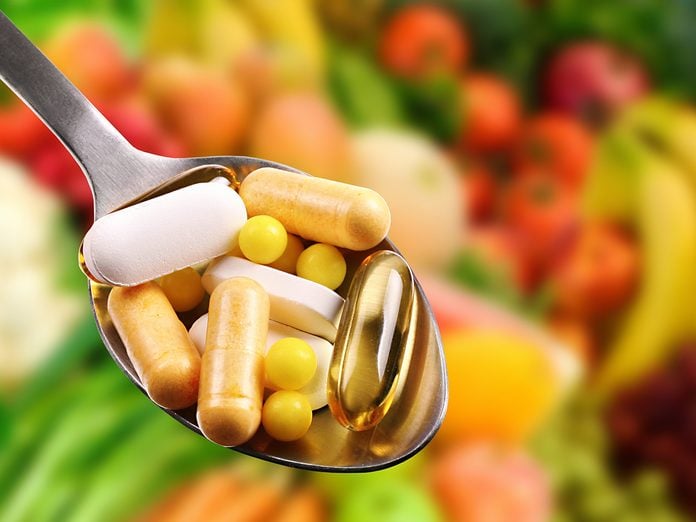
Vitamins and supplements to take with food
You know that the best way to get your daily recommended amount of nutrients is through whole foods. However, sometimes your diet may not provide you with all the essential vitamins and minerals your body needs throughout the day. Enter: Dietary supplements.
Vitamin and mineral supplements can provide an extra boost and prevent a deficiency for those who have a health condition, or simply need more in their diet. When it comes to supplements, choosing the correct dosage is important, as well as how and with what you take your vitamin.
Read on to learn the dietary supplements you should always take with food to maximize your body’s absorption.

Vitamin A
Vision- and immunity-boosting vitamin A is fat-soluble, meaning the body absorbs it with fats in the diet, so it’s best taken with food. According to the National Institutes of Health’s Office of Dietary Supplements, beta-carotene (an important source of vitamin A) is the most common vitamin A-type in foods and dietary supplements. The recommended amount of vitamin A varies by the individual based on age and sex.
Discover more science-backed ways to boost your immune system.
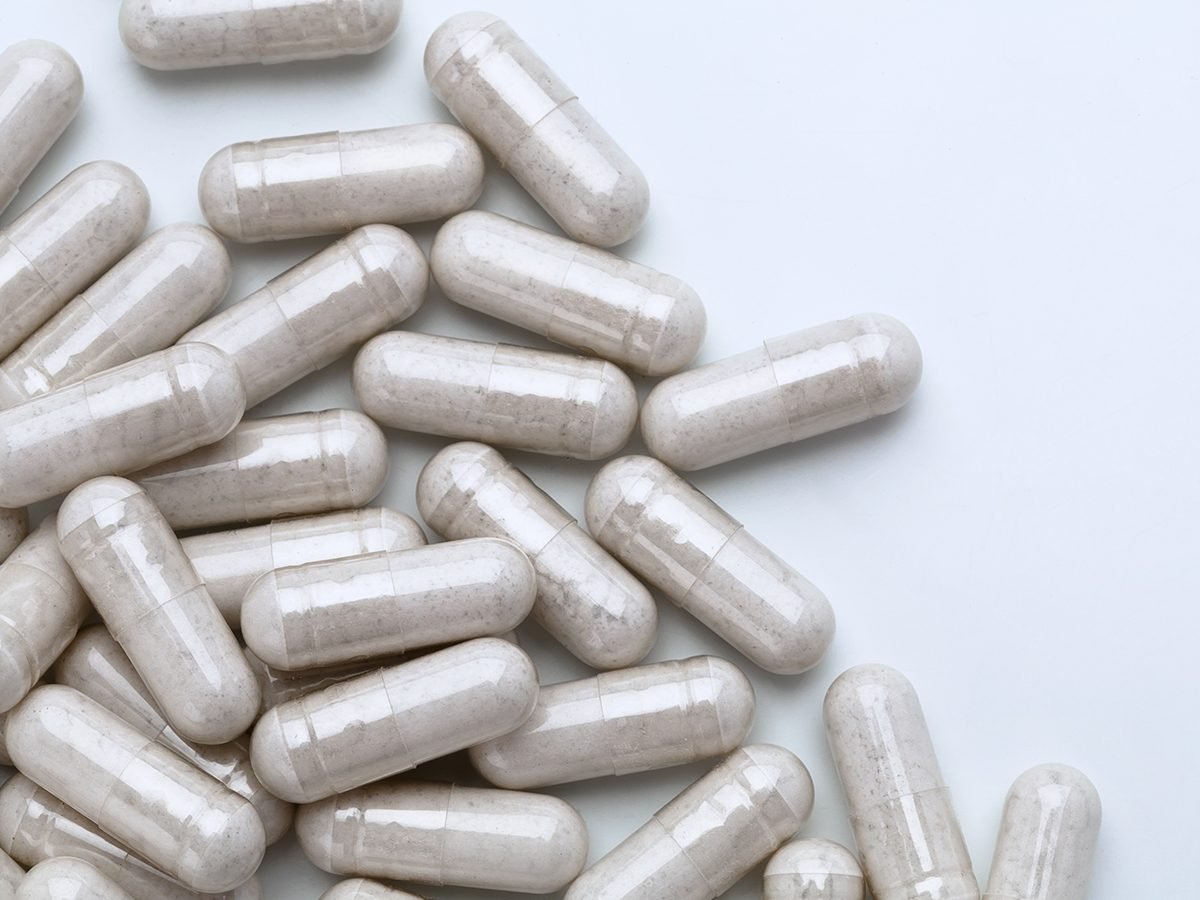
Probiotics
“Probiotics, which can be the most expensive of all your vitamins, should be taken just before or at the time of your meals to help decrease the effects of stomach acid that can kill the probiotics,” says Elsie Koh, MD, medical director of Azura Vascular Care. Waiting until after the meal won’t have those same benefits—a 2011 study published in Beneficial Microbes found that most of the beneficial bacteria in a probiotic supplement survived when taken 30 minutes before or during a meal; very few did when taken half an hour after eating. A bit of fat also seemed to help; more survived with one per cent milk or oat milk than with apple juice or water.
Here’s expert advice on how to heal your gut.
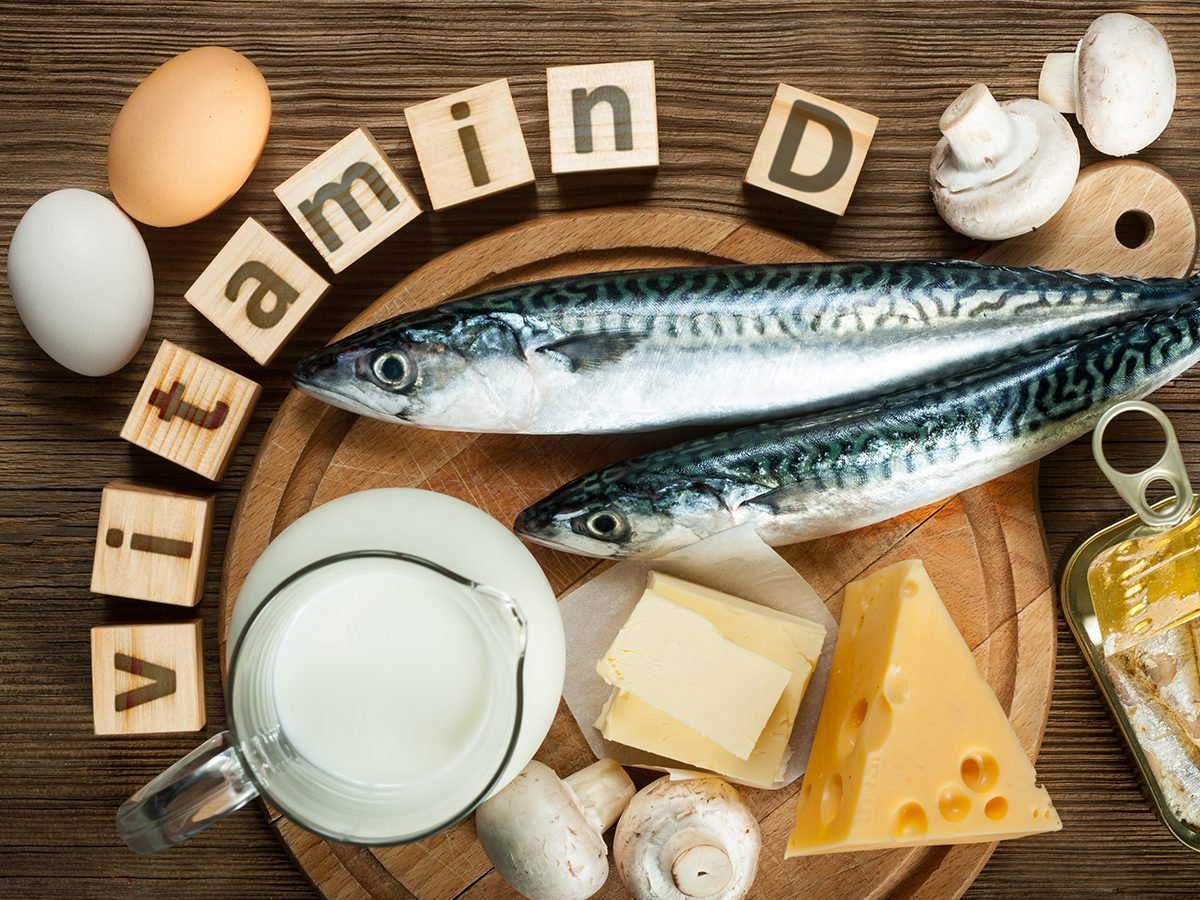
Vitamin D
Your skin produces “the sunshine vitamin” when it’s exposed to sunlight, but it can be tough to get enough in just food sources. If you take a supplement to boost your body’s levels, you’ll want to have a bite to eat with this fat-soluble vitamin, says Rachel Fine, RD, owner of To The Pointe Nutrition. “Vitamin D supplements should be taken with food, preferably with your largest meal of the day, which is likely to contain the most fat,” says Fine. “Research [a 2010 study published in the Journal of Bone and Mineral Research] has shown that this can increase absorption up to 50 per cent.”
Learn to spot the signs you’re not getting enough sunlight.
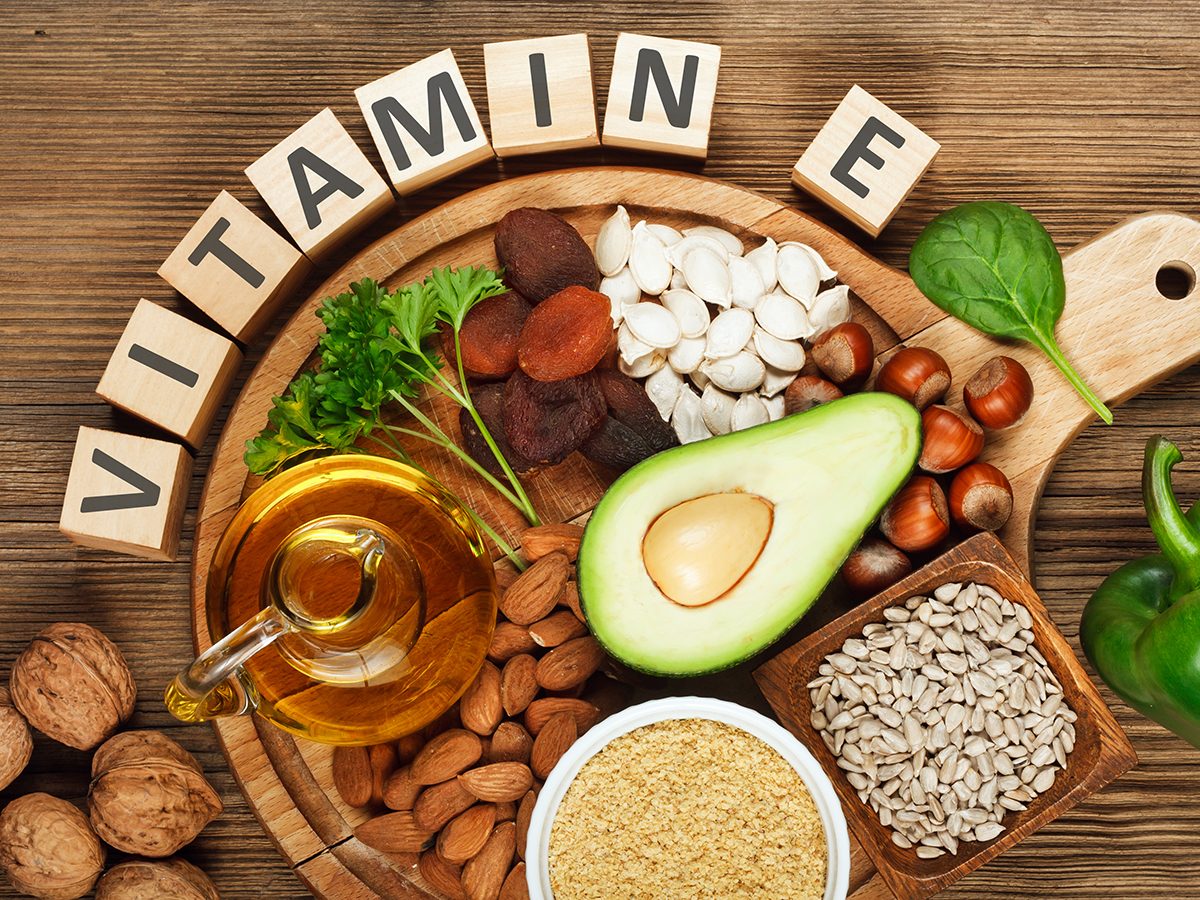
Vitamin E
This antioxidant can protect your body from tissue-damaging molecules called free radicals—especially if you take it with food. This vitamin is fat-soluble, so taking it with a snack (bonus points if it’s seeds or nuts, which contain healthy fats and extra vitamin E) will boost absorption, according to Medline Plus.
Don’t miss our healthy grocery shopping guide.
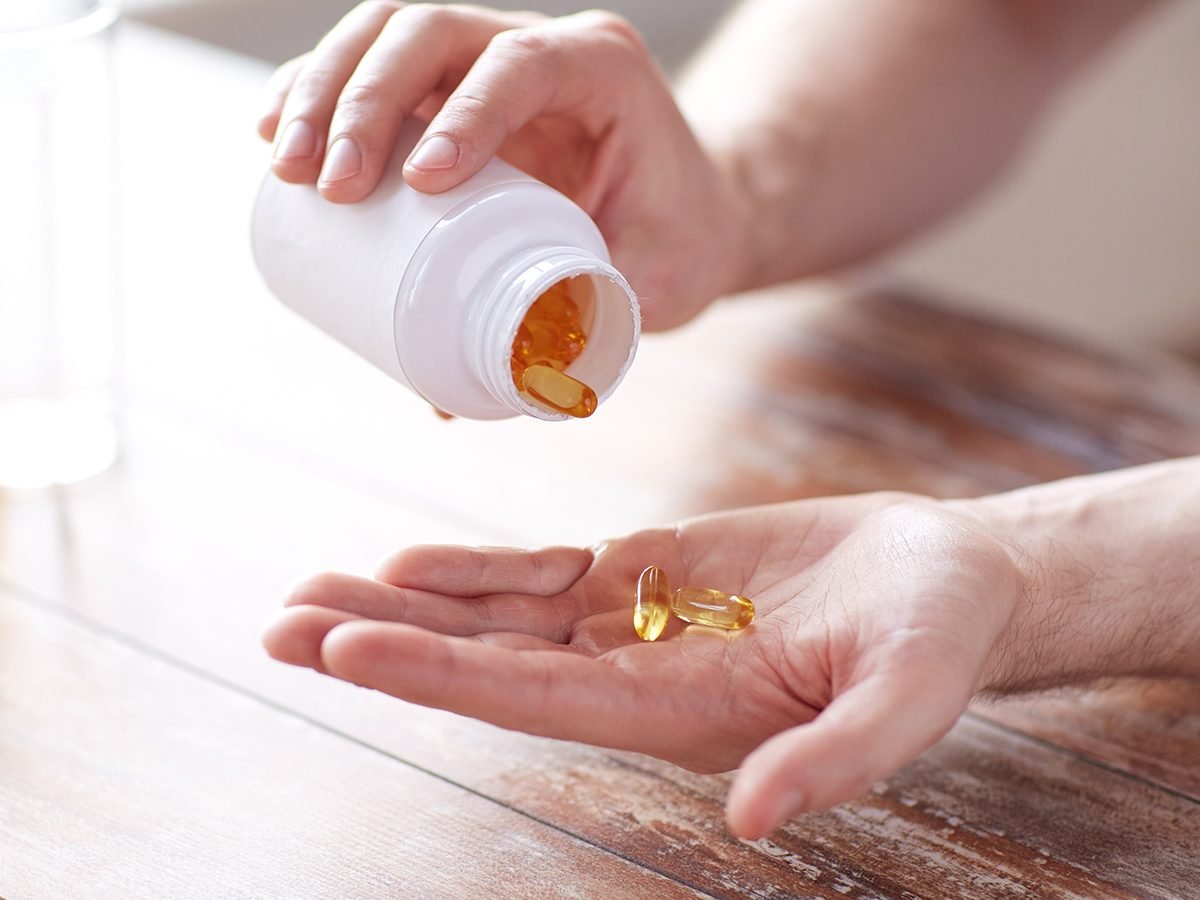
Fish oil
According to the National Center for Complementary and Integrative Health, fish oil might not be all it’s cracked up to be in terms of protecting the heart. Neither is the belief that you’re better off getting omega-3s from actual fish and other food sources. That said, a pill a day likely won’t do harm (other than an unpleasant aftertaste). Also, some doctors still recommend them as a preventive measure. But if you don’t eat fish—and fish oil is still part of your daily routine—be sure to take the tablets with a meal. “Take these with food in the morning to avoid any regurgitation or burping of the oil,” recommends Elroy Vojdani, MD, functional medicine expert and founder of Regenera Medical, in Los Angeles.
Find out the healthiest fish you can eat.
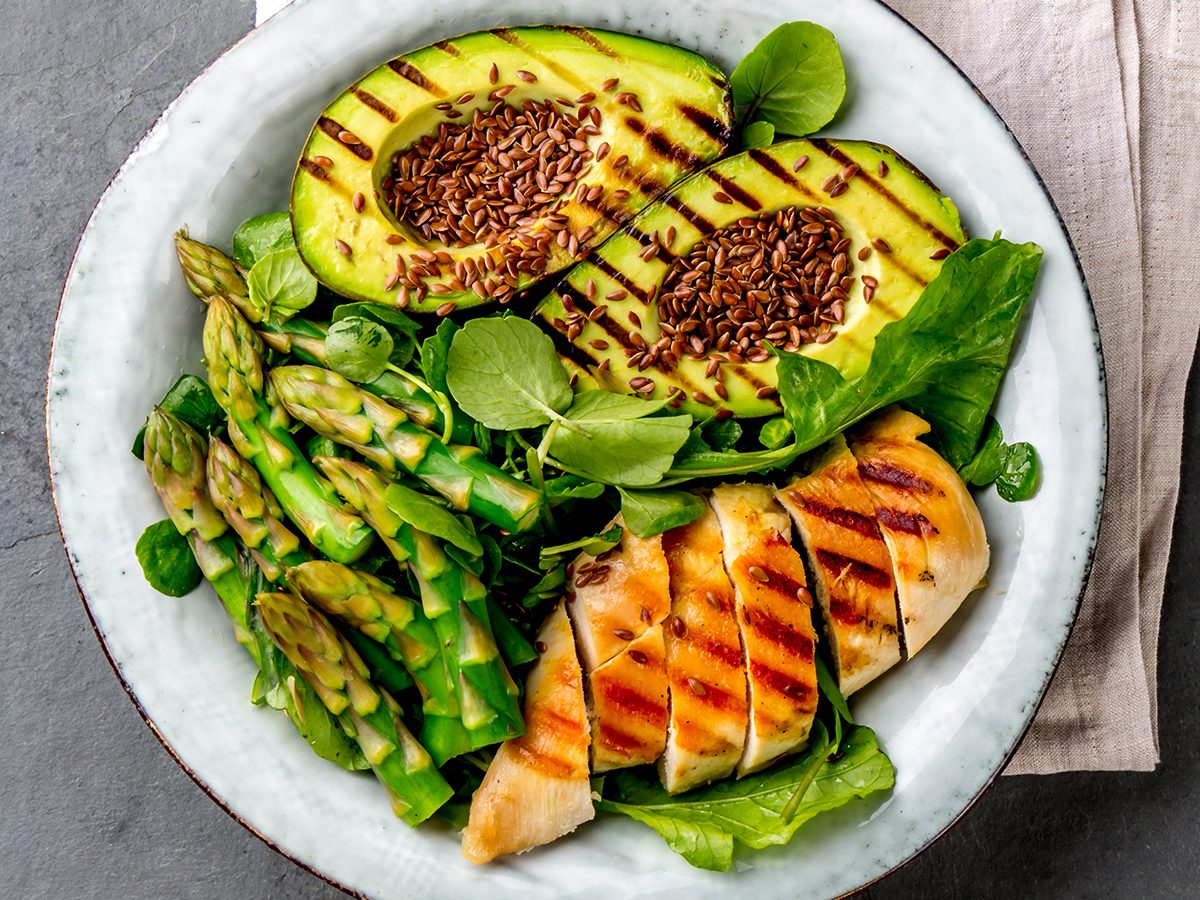
Vitamin K
Vitamin K helps with bone-building and blood-coagulation, but a deficiency is rare. If your doctor does recommend a supplement, know that it’s fat-soluble and fares better when taken with food that contains a bit of fat.
Here’s how to spot the silent signs you may have a vitamin deficiency.
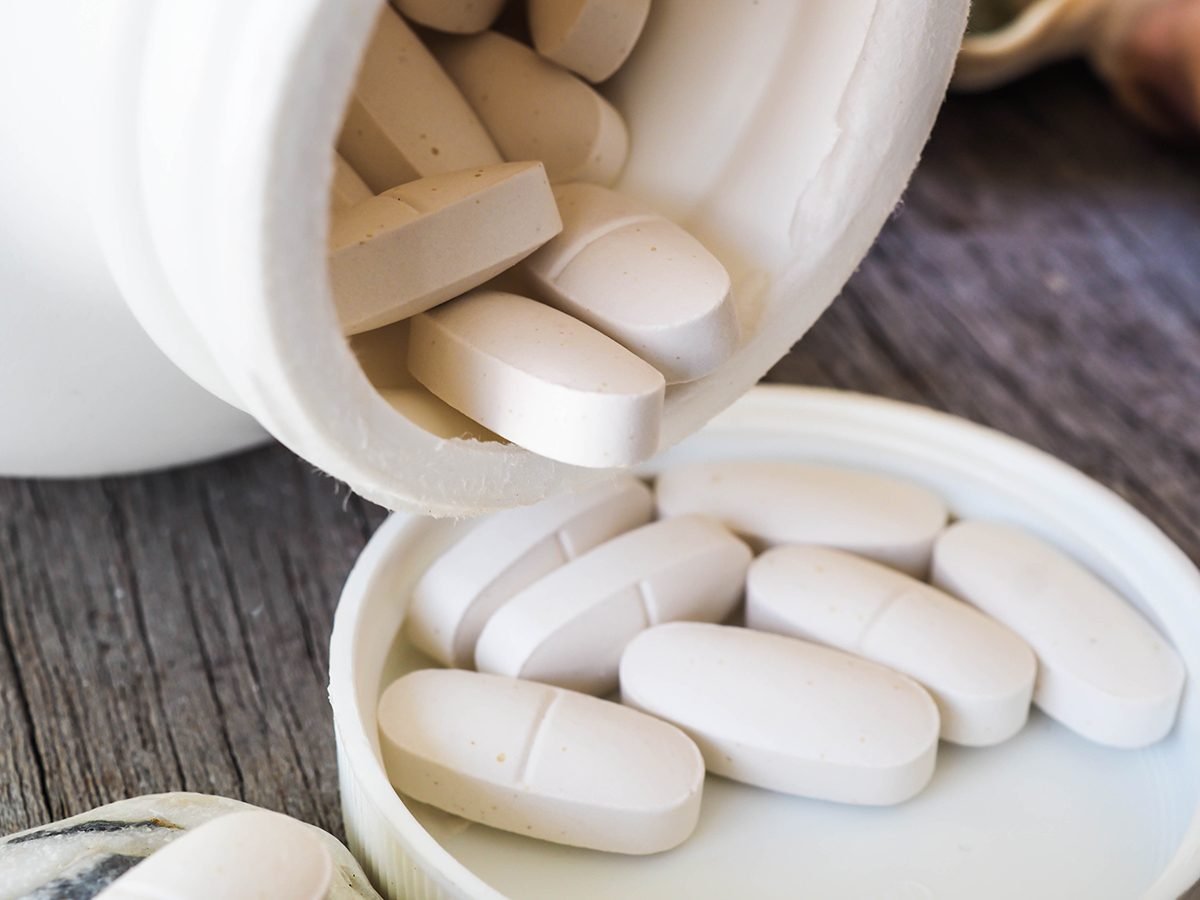
Calcium
There are two main forms of calcium—calcium carbonate and calcium citrate—and whether food is necessary depends on which type you’re taking, says Michael Roizen, MD, chief wellness officer at the Cleveland Clinic and medical advisory board member for vitamin company Persona. Calcium citrate doesn’t require food, but the stomach acid produced when you eat helps the body absorb calcium citrate, says Dr. Roizen, who generally recommends calcium citrate. It’s also worth noting that supplements often contain both calcium and fat-soluble vitamin D (which helps absorb the mineral); those should be taken with food too. No matter which form you take, you’re best off taking no more than 600 milligrams of calcium at a time, says Dr. Roizen, author of What to Eat When; the body can’t absorb much more than that at a time, so any extra would be a waste. And save any high-calcium snacks for later on, when your body is ready to absorb more.
Taking calcium supplements to build stronger bones? Find out more osteoporosis risk factors you can control.

Echinacea
Even though there’s no conclusive evidence that echinacea can stop a cold, it’s one of the most popular herbal supplements on the market. Mount Sinai recommends never taking echinacea on an empty stomach, so be sure to eat beforehand.
Here are 10 home remedies that are backed by science.

Iron (if your tummy is sensitive)
Given that about eight per cent of women have iron-deficiency anemia, your doctor might recommend taking an iron supplement, according to a 2016 study in PLoS One. (These are the symptoms of anemia you should never ignore.) The body actually has an easier time absorbing iron when taken on an empty stomach, but some people still might be better off taking the pills with food, according to MedlinePlus. Iron can cause digestive issues like nausea, diarrhea, and cramps, but eating a bit of food will offset those unpleasant side effects. “If you have a sensitive stomach, take it first thing in the morning and wash it down with juice,” recommends Dr. Koh. Just make sure you avoid caffeine, milk and calcium supplements when taking iron, as those block some iron absorption, warns Dr. Roizen.
Read up on the importance of getting enough iron.

Multivitamin
Most multivitamins contain a mix of water-soluble vitamins (like B and C) and fat-soluble vitamins, so you’ll want to prep your body to absorb both. “Taking half a high-quality multivitamin in the a.m. and half in the p.m. makes sense since the excess water-soluble components are urinated out in under 16 hours,” says Dr. Roizen. “So to keep a relatively consistent level, take half with some warm water, tea, or coffee, and be sure to add a little fat beforehand (e.g. a few walnuts—two or three is all that is needed). This should facilitate better absorption of the fat-soluble components.”
Next, find out which supplements and prescription drugs you should never mix.